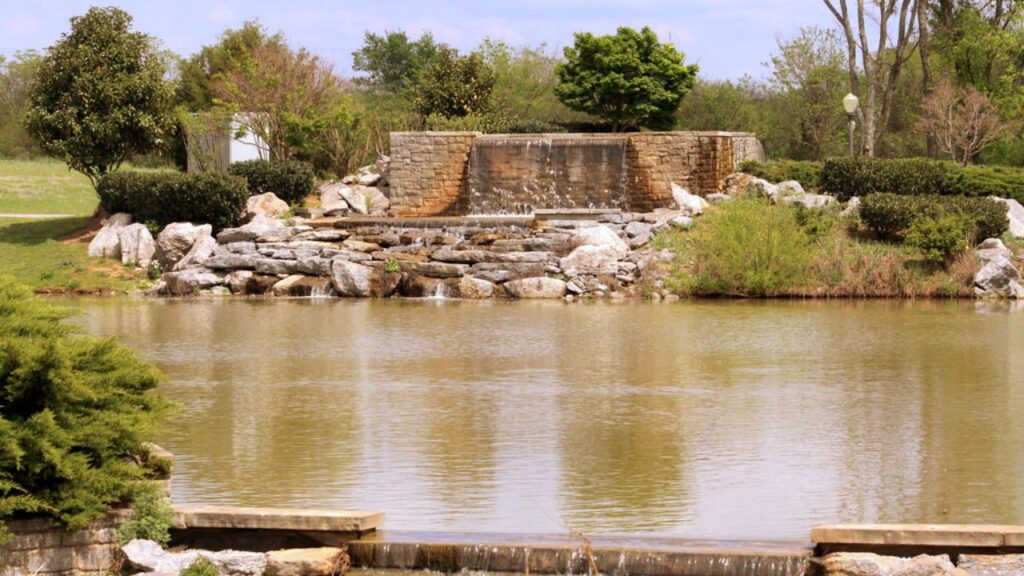The journey of recovery continues long after completing formal treatment. For Murfreesboro residents returning home after rehabilitation, a robust network of local resources provides essential support for maintaining sobriety and building a fulfilling life in recovery. These community-based services offer the structure, accountability, and connection necessary for long-term success.
Support Groups in Murfreesboro
Murfreesboro hosts numerous recovery support meetings daily, providing accessible options for continued peer connection. Alcoholics Anonymous (AA) holds multiple meetings throughout the city, with gatherings available morning, afternoon, and evening at locations including local churches, community centers, and dedicated meeting spaces.
Narcotics Anonymous (NA) offers several weekly meetings in Murfreesboro, creating spaces specifically focused on recovery from drug addiction. These meetings welcome newcomers and provide sponsors who offer personalized guidance through the recovery process.
Alternative support groups include SMART Recovery, Refuge Recovery, and Celebrate Recovery, each offering distinct approaches to maintaining sobriety. This variety allows individuals to find communities that resonate with their personal values and recovery needs.
Continued Therapy Options
Several Murfreesboro providers offer outpatient addiction counseling services, allowing continuity of care following residential treatment. These therapists specialize in addiction recovery and often coordinate with treatment centers to ensure smooth transitions and consistent approaches.
Group therapy programs provide structured support while building connections with others facing similar challenges. Many local counseling centers offer specialized groups addressing specific aspects of recovery, including relapse prevention, emotional regulation, and relationship healing.
Telehealth options have expanded access to specialized addiction therapists, allowing Murfreesboro residents to maintain therapeutic relationships established during treatment even when providers are located elsewhere. This continuity preserves the therapeutic alliance built during intensive treatment.

Sober Living Environments
Murfreesboro offers several recovery residences providing structured, substance-free living environments for those transitioning from treatment to independent living. These homes combine independence with accountability, typically requiring participation in recovery activities, regular drug screening, and household responsibilities.
Recovery housing options range from highly structured programs with staff supervision to more independent living arrangements with peer accountability. This spectrum allows individuals to find appropriate support based on their stage of recovery and personal needs.
Many sober living homes maintain connections with local employers who understand recovery needs, facilitating employment opportunities that accommodate ongoing recovery activities like therapy appointments and support group attendance.
Career and Education Resources
Workforce development programs specifically supporting individuals in recovery exist within Murfreesboro, offering job readiness training, interview preparation, and connections to recovery-friendly employers. These programs understand the unique barriers facing those with addiction histories and provide specialized support.
Middle Tennessee State University (MTSU) offers resources for students in recovery, including academic counseling and potential accommodations for those balancing education with recovery needs. The university’s counseling services include staff familiar with addiction recovery challenges.
Vocational rehabilitation services available through state programs provide assessment, training, and placement services for those whose substance use has impacted employment history or created barriers to career advancement.
Community-Based Recovery Programs
Murfreesboro Parks and Recreation Department offers healthy activity options that support recovery lifestyles, including fitness classes, outdoor activities, and sports leagues that provide structure, stress relief, and social connection without substances.
Local faith communities sponsor recovery ministries that combine spiritual growth with addiction recovery principles. These programs offer both practical support and meaning-focused approaches that enhance quality of sobriety.
Volunteer opportunities with local organizations allow those in recovery to develop new skills, expand social networks, and experience the benefits of service to others—a key component of many recovery programs that strengthens personal commitment to sobriety.
Relapse Prevention Resources
Crisis intervention services provide immediate support during periods of increased risk, offering 24/7 access to trained counselors who can help navigate triggering situations or strong cravings. These services create safety nets for vulnerable moments in early recovery.
Several Murfreesboro medical providers offer medication-assisted treatment (MAT) services that can reduce cravings and support long-term recovery for those with opioid or alcohol use disorders. These medical interventions work most effectively when combined with counseling and peer support.
Recovery coaching services connect individuals with trained coaches who provide personalized accountability and practical guidance for navigating everyday recovery challenges. These relationships bridge the gap between formal treatment and independent recovery management.
Complementary Support Services
Murfreesboro offers numerous wellness resources that complement recovery, including meditation groups, yoga classes, and nutrition coaching. These holistic approaches address physical and mental well-being that support sustainable recovery.
Family support programs help loved ones understand addiction and develop healthy relationship patterns that support recovery rather than enabling problematic behaviors. These resources recognize that family healing often parallels individual recovery.
Recreational groups specifically for people in recovery organize substance-free social activities, addressing the common challenge of building a fulfilling social life without alcohol or drugs. These communities demonstrate that connection and enjoyment remain abundant in sobriety.
Connecting Treatment to Local Resources
Effective treatment programs begin discharge planning early, identifying appropriate Murfreesboro resources and making direct connections before clients complete treatment. This bridging approach significantly increases the likelihood of engaging with support services.
Many treatment centers schedule follow-up contacts with discharged clients, checking on their transition and reinforcing connections to local resources. These touchpoints provide accountability and help troubleshoot barriers to accessing community support.
The skills developed during treatment—including communication, emotional regulation, and relapse prevention strategies—create foundations for effectively utilizing local resources. Treatment teaches individuals how to engage with support systems rather than simply directing them to services.
Creating Your Recovery Network
Building a sustainable recovery lifestyle in Murfreesboro involves connecting with multiple support resources rather than relying on a single program or approach. This integrated network provides complementary benefits and creates safety nets if any single resource becomes unavailable.
The transition from treatment to community living represents a crucial period requiring intentional focus on building recovery connections. Taking action to establish these relationships during the first days and weeks home significantly improves long-term outcomes.
If you’re preparing to return to Murfreesboro after treatment or supporting a loved one in this transition, call JourneyPure At The River at 629-222-9449 to speak with our aftercare team about connecting with local recovery resources.
